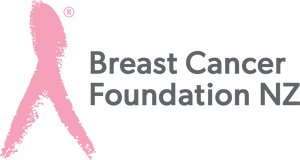OPINION: Covid-19 has created a huge backlog for New Zealanders affected by breast cancer. The next government must improve access to diagnosis and treatment to prevent more deaths, says Breast Cancer Foundation NZ CEO Evangelia Henderson.
I always look forward to the contest of ideas that comes with every election, but I never imagined we’d be going to the polls in the midst of a global pandemic. Covid-19 has put a spotlight on the inadequacies of our health system, and in many ways, it’s made existing problems worse.
With this year’s general election falling right in the middle of Breast Cancer Awareness Month, I’m challenging all candidates to make sure breast cancer stays high on the political agenda. Politicians need to know that Covid-19 can’t be an excuse to sideline breast cancer patients, especially when the pandemic has already done that.
There’s no doubt Covid-19 has made life harder for New Zealanders affected by breast cancer. Our country’s celebrated response to Covid-19 has inevitably meant other health priorities have been pushed aside. During lockdown under alert levels three and four, the national breast screening service was put on hold and diagnostic tests were scaled back as hospitals braced for the unknown impact of Covid-19. That meant for six weeks around 200 women who had no idea they have breast cancer missed out on getting the mammogram that would’ve found it. A further 200 women would’ve found a cancerous breast lump (or detected another symptom) while locked down at home undiagnosed, either because they struggled to see their GP or due to a delayed referral process at their local hospital.
Monthly updates from Te Aho o Te Kahu (the Cancer Control Agency) reveal the extent of the backlog caused by lockdown. It’s April report showed breast cancer diagnoses were down 62% compared to last year. This backlog has added to existing problems with access to diagnostic services and doctors have told us they don’t know how they’ll catch up. But it’s imperative they do because early detection is a huge factor in breast cancer survival.
The backlog also jeopardises the extension of the free national screening programme to include women up to the age of 74, promised by this government three years ago. The commitment, published in the coalition agreement between Labour and New Zealand First, came as a result of our hard-won campaigning and presentation of a 10,000-signature petition to Jacinda Ardern in 2016. But we’re yet to see the rollout of free mammograms to this group of women.
Currently, only women aged 45 to 69 are eligible for free screening, yet a woman’s risk of breast cancer is actually higher at 70 than it is at 50. BreastScreen Aotearoa has already acknowledged the evidence exists to justify extending the screening age to 74. This would bring us in line with Australia and the UK. It would also remove the cost barrier for women who are can’t afford to pay for a mammogram, which can be around $250 – a cost out of reach for many older women.
It makes financial sense too. Extending the age to 74 would only require two additional mammograms per woman above the current screening programme. By finding cancer earlier, the minimal cost to the health system would be reduced by patients needing less radical and less toxic treatment. With women now living healthier lives for longer and contributing to society well past retirement age, it would be foolish for the next government to write these women off for breast screening.
On the treatment front, we’re hugely concerned Covid-19 will be used as an excuse to abandon the development of an early access programme for new cancer medicines. The government had made this commitment in the Cancer Action Plan published in late 2019, but there still hasn’t been any sign of action. We urgently need a simpler, faster way to approve new cancer drugs based on evidence accepted in other developed countries. The approach taken by Pharmac is outdated and simply isn’t up to scratch for evaluating the latest, specialised cancer drugs.
Taking action in each of these areas will save or extend the lives of thousands of New Zealanders. This year, around 650 people will die of breast cancer, and cancer overall will again likely be New Zealand’s biggest killer. There’s so much that can be done to prevent this.
There’s a lot ordinary New Zealanders can do too to help us make our vision of zero deaths from breast cancer a reality. As an organisation, we’ve been hit hard by Covid-19 and suffered a severe drop in our income. This greatly affects our ability to support patients, fund ground-breaking research, and run education and awareness campaigns.
We’ve been blown away by the community spirit we’ve seen around the country since the arrival of Covid-19. With breast cancer being the most common cancer for New Zealand women (one in nine will be diagnosed in their lifetime), almost all of us know someone who’s been affected by this cruel disease. We hope Kiwis will show some love this October and get involved with Breast Cancer Awareness Month. Visit our website to see how you can make a difference.


